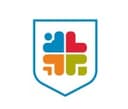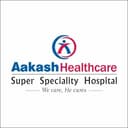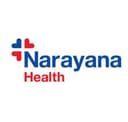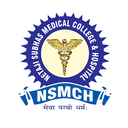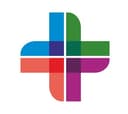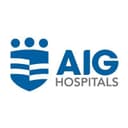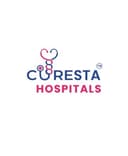Cardiac Life Support Program
OR
Prepared by Docthub Courses Team ∣
Last updated on 07 Aug 2024
Overview
The Cardiac Life Support Program is designed to train healthcare professionals in life-saving techniques and protocols for managing cardiac emergencies.
Cardiac Life Support Program Certification focuses on providing participants with the skills and knowledge necessary to respond effectively to cardiac events and improve patient outcomes.
The Cardiac Life Support Program Reviews encompasses theoretical and practical training in cardiopulmonary resuscitation (CPR), defibrillation, airway management, and the application of advanced life support protocols.

Table of Content
Highlights
| Details | Cardiac Life Support Program |
| Level | Training Program / Certification / Diploma |
| Duration | Few Hours |
| Exam Type | Written |
| Course Fees | INR 1000-10,000 |
| Min. Qualification Requirement | Candidates should be Healthcare Professionals. |
| Average Salary | INR 2 - 5 Lakhs |
| Selection Process | Entrance Exam/Merit-based |
| Min. Aggregate Score | 50% or more in 10+2 in science stream |
Eligibility
The Cardiac Life Support Program Requirement explains that candidates should be Healthcare professionals such as doctors, nurses, paramedics, and emergency medical technicians (EMTs).
Duration
The duration of the course can vary, often ranging to a few hours, depending on the program structure and curriculum.
Fees
Course fees can differ based on the institute, its location, and program duration, generally falling within the range of INR 1000-10,000.
Who Should Do This Course?
The Cardiac Life Support Program is particularly well-suited for:
- Aspiring medical and nursing students seeking foundational skills in cardiac life support.
- Professionals responsible for workplace safety and health, especially in industries where the risk of cardiac emergencies is elevated.
- Individuals involved in community health initiatives, where knowledge of cardiac life support is beneficial.
- Individuals working in environments with an elevated risk of cardiac emergencies, such as fitness instructors, lifeguards, and sports coaches.
- Anyone interested in being prepared to respond effectively to cardiac emergencies, including family members and caregivers.
Why Study This Course?
Studying the Cardiac Life Support Program offers several compelling reasons for individuals like:
- Acquire essential skills in cardiopulmonary resuscitation (CPR), defibrillation, and airway management to respond effectively to cardiac emergencies.
- Improve the chances of positive outcomes for individuals experiencing cardiac events through prompt and effective intervention.
- Obtain recognized certification upon successful completion, enhancing professional credentials and credibility.
- Valuable for healthcare professionals seeking roles in emergency care, critical care units, or any setting where rapid response to cardiac events is crucial.
- Relevant for professionals in diverse roles, including doctors, nurses, paramedics, first responders, and those in occupational health and safety.
Admission Process
There are two main types of Cardiac Life Support Programs:
The admission process for each program will vary depending on the specific program and organization offering it. However, here is a general overview:
Basic Life Support (BLS):
- Prerequisites: There are typically no prerequisites for taking a BLS course.
- Application process: You can usually register for a BLS course online or by contacting the program provider directly.
- Cost: The cost of a BLS course will vary depending on the provider, but it is typically less expensive than an ACLS course.
- Certification: Upon successful completion of the course, you will receive a BLS certification card that is valid for two years.
Advanced Cardiovascular Life Support (ACLS):
- Prerequisites: Most ACLS courses require that you have a current BLS certification. Some programs may also have additional prerequisites, such as being a healthcare professional with a certain level of experience.
- Application process: The application process for ACLS courses is typically more rigorous than for BLS courses. You may need to submit an application form and provide documentation of your BLS certification and any other required prerequisites.
- Cost: ACLS courses are typically more expensive than BLS courses.
- Certification: Upon successful course completion, you will receive an ACLS certification card valid for two years.
There are a few Guidelines for Cardiac Life Support Programs to follow:
- Cardiac life support programs should be regularly reviewed and updated to reflect the latest evidence-based practices.
- Healthcare professionals and the public should have access to training in cardiac life support skills.
- Programs should be available to people in all communities, regardless of their socioeconomic status.
Entrance Exam
Generally, there are no entrance exams for admissions to Cardiac life support programs for patients. The term "Cardiac Life Support Program" can encompass a range of courses and certifications.
- Basic Life Support (BLS): This is the most foundational course in cardiac life support, teaching basic skills like CPR, airway management, and defibrillation. Most BLS courses do not have an entrance exam but may require successful completion of a previous course like First Aid or CPR.
- Advanced Cardiovascular Life Support (ACLS): This builds on BLS skills and focuses on managing cardiac arrest and other critical cardiovascular emergencies. ACLS courses may have a pre-course self-assessment or knowledge test, but not a formal entrance exam.
- Pediatric Advanced Life Support (PALS): This course focuses on providing advanced life support for critically ill or injured infants and children. PALS courses typically have a pre-course self-assessment or knowledge test, but not a formal entrance exam.
Syllabus
There are two main Cardiac Life Support programs: Basic Life Support (BLS) and Advanced Cardiovascular Life Support (ACLS).
The general structure and core subjects of the program are typically as follows:
| Year/Semester | Courses |
| Basic Life Support (BLS) | Basic Life Support (BLS) BLS is designed for healthcare providers and laypeople to learn how to perform CPR and provide basic first aid in an emergency: Adult, child, and infant CPR Use of an automated external defibrillator (AED) Relief of foreign-body airway obstruction Control of bleeding
|
Advanced Cardiovascular Life Support (ACLS)
| ACLS is designed for healthcare professionals who provide advanced care to critically ill patients: Recognition and management of cardiac arrest Management of acute coronary syndromes (ACS) and stroke Airway management Pharmacology Effective communication as a member and leader of a resuscitation team |
Top Private Colleges
Here's a list of the top Private Cardiac Life Support Program training institutes in India:
- Apollo Hospitals Centre for Training and Research (AHCTR), Chennai
- Manipal Academy of Higher Education, Manipal
- Christian Medical College (CMC), Vellore
- Fortis Escorts Heart Institute, New Delhi
- Wockhardt Hospitals, Mumbai
- JSS Medical College, Mysore
- Amrita Institute of Medical Sciences, Kochi
- SRM Institute of Science and Technology, Chennai
- Kasturba Medical College, Manipal
- Max Super Specialty Hospital, Saket, Delhi
Top Govt Colleges
Here's a list of the top Government Cardiac Life Support Program training institutes in India:
- All India Institute of Medical Sciences, New Delhi
- Grant Medical College and Sir J.J. Hospital, Mumbai
- King George's Medical College, Lucknow
- Kasturba Gandhi Medical College, Surat
- Seth GS Medical College, Mumbai
- Maulana Azad Medical College, Delhi
- Government Medical College, Chandigarh
- Stanley Medical College, Chennai
- Rajiv Gandhi Government Medical College, Shimla
- Institute of Medical Sciences, Odisha
Scope
The Cardiac Life Support Program Scope opens doors to diverse and promising career paths, offering stability and growth:
- Hospitals
- Cardiac Care Units
- Clinics
- Community settings
- Public Safety Roles
Further Study Options
After completing a Cardiac Life Support Program, individuals may explore further study options to broaden their expertise and career opportunities:
- Advanced Cardiac Life Support (ACLS) Certification
- Critical Care Courses
- Emergency Medicine Specialization
- Critical Care Nursing or Paramedicine
Career Opportunities After This Course
Graduates of the Cardiac Life Support Program can explore various career opportunities, including:
- Emergency Medical Technician (EMT)
- Paramedic
- Community CPR instructor
- Public safety officer
- Instructor for Basic Life Support (BLS)
Salary
Salaries for individuals with a Cardiac Life Support Program can vary based on factors such as experience, location, type of healthcare institution, and specialization. Generally, professionals receive competitive salaries ranging from 2 – 5 lakhs.
Working in hospitals, specialized cardiac care units, or research institutions can influence salaries.
Explore colleges for this course
Quick Go Links

Explore this course by location..
by States
by Cities
Related Job Roles
Related Job Vacancies
View All 18 Jobs

FAQS
What is Cardiac Life Support Program?
The Cardiac Life Support Program is a training course designed to equip healthcare professionals and first responders with essential skills in responding to cardiac emergencies, including cardiopulmonary resuscitation (CPR) and advanced life support techniques.
What is the purpose of cardiac life support Program?
The Cardiac life support program for patients aims to enhance participants' ability to respond promptly and effectively to cardiac emergencies, improving patient outcomes through the application of standardized and evidence-based life-saving techniques.
How do you perform cardiac life support?
Cardiac life support involves a systematic approach, including chest compressions, airway management, and defibrillation. It follows standardized algorithms, emphasizing early intervention and coordinated efforts to optimize blood circulation and restore normal cardiac function.
Are Cardiac Life Support Program Effective?
The program's effectiveness lies in providing participants with practical skills and knowledge to respond confidently and efficiently to cardiac emergencies.
What does this course teach?
The course typically covers basic and advanced life support techniques, including CPR, defibrillation, airway management, and the use of automated external defibrillators (AEDs).
Related Course titles

Qualifications
12th Science PCB
Related Specialty
Emergency Technology
